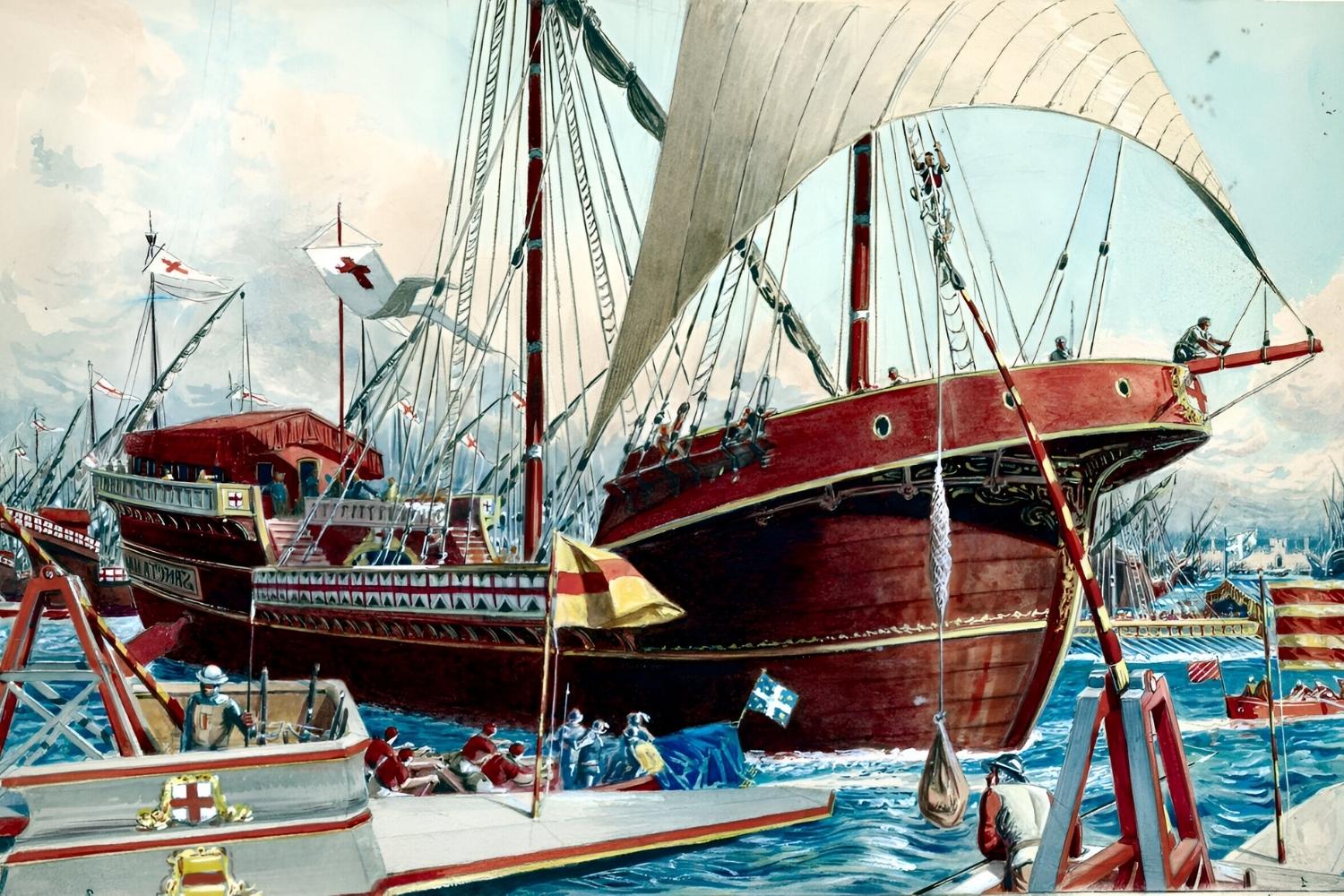
What was the War of Chioggia? The War of Chioggia was a fierce conflict between the maritime republics of Venice and Genoa, lasting from 1378 to 1381. This war was part of a larger struggle for dominance over Mediterranean trade routes. It got its name from the pivotal battle in the town of Chioggia, where Venice faced near defeat. The Genoese managed to capture Chioggia, putting Venice in a dire situation. However, through strategic brilliance and sheer determination, Venice turned the tide, eventually reclaiming Chioggia and forcing Genoa to surrender. This war marked a significant turning point, solidifying Venice's supremacy in the region.
Key Takeaways:
- The War of Chioggia was a pivotal conflict between Venice and Genoa, shaping their maritime dominance and teaching valuable lessons in strategy and diplomacy.
- This historic war showcased Venice's resilience and the importance of controlling Mediterranean trade routes, leaving a lasting impact on medieval Europe.
The War of Chioggia: An Overview
The War of Chioggia was a significant conflict between the Republic of Venice and the Republic of Genoa. It took place from 1378 to 1381 and had lasting impacts on both maritime republics. Here are some fascinating facts about this historic war.
- The war was named after the town of Chioggia, a strategic location in the Venetian Lagoon.
- It was part of the larger Venetian-Genoese Wars, a series of conflicts between Venice and Genoa.
- The war began when Genoa attacked the Venetian colony of Tenedos in the Aegean Sea.
- Both republics were vying for control over Mediterranean trade routes.
- The conflict saw the involvement of other powers, including Hungary and the Papal States.
Key Battles and Events
Several key battles and events shaped the course of the War of Chioggia. These moments were crucial in determining the outcome of the conflict.
- The Battle of Pola in 1379 was a significant naval engagement where the Genoese fleet defeated the Venetians.
- After their victory at Pola, the Genoese blockaded Venice, cutting off its supply lines.
- The Siege of Chioggia began in 1379 when Genoese forces captured the town.
- Venetian forces, led by Admiral Vettor Pisani, launched a counterattack to retake Chioggia.
- The Battle of Chioggia in 1380 was a turning point, with Venice reclaiming the town from Genoa.
Notable Figures
Several notable figures played crucial roles in the War of Chioggia. Their leadership and decisions had a significant impact on the conflict's outcome.
- Vettor Pisani was a prominent Venetian admiral known for his strategic brilliance.
- Carlo Zeno, another Venetian admiral, played a key role in lifting the Genoese blockade.
- Pietro Doria was a leading Genoese admiral who commanded their fleet during the war.
- Doge Andrea Contarini of Venice provided crucial political and military leadership.
- King Louis I of Hungary supported Genoa, seeking to weaken Venice's influence.
Diplomatic Maneuvers
Diplomacy played a vital role in the War of Chioggia. Both sides sought alliances and negotiated treaties to gain an advantage.
- The Peace of Turin in 1381 ended the war, with both sides agreeing to a truce.
- Venice had to cede the island of Tenedos to Genoa as part of the peace agreement.
- The treaty also required Venice to pay a large indemnity to Genoa.
- Despite the truce, tensions between Venice and Genoa remained high.
- The war's end marked a temporary halt in the long-standing rivalry between the two republics.
Impact on Venice and Genoa
The War of Chioggia had lasting effects on both Venice and Genoa. The conflict influenced their political, economic, and military landscapes.
- Venice emerged from the war with its maritime dominance intact.
- The war strained Venice's finances, leading to increased taxes and economic reforms.
- Genoa suffered significant losses, weakening its naval power.
- The conflict highlighted the importance of naval warfare in the Mediterranean.
- Both republics learned valuable lessons in military strategy and diplomacy.
Legacy of the War
The War of Chioggia left a lasting legacy in the history of Venice and Genoa. Its impact can still be seen in various aspects of their cultures and histories.
- The war is remembered as a testament to Venice's resilience and strategic prowess.
- It reinforced the importance of controlling key maritime routes in the Mediterranean.
- The conflict influenced subsequent naval battles and military tactics in the region.
- The war's events are depicted in various historical texts and artworks.
- The War of Chioggia remains a significant chapter in the history of medieval Europe.
The End of the War of Chioggia
The War of Chioggia was a pivotal conflict between Venice and Genoa in the late 14th century. It showcased the fierce rivalry and strategic brilliance of both maritime republics. The war ended with the Treaty of Turin in 1381, marking a significant victory for Venice. This treaty not only restored peace but also shifted the balance of power in the Mediterranean. Venice emerged stronger, while Genoa faced a decline in influence.
Understanding this war helps grasp the complexities of medieval politics and the importance of naval power. The War of Chioggia remains a testament to the resilience and ambition of these historic cities. It’s a fascinating chapter that shaped the course of European history, leaving a lasting legacy on the political landscape of the time.
Frequently Asked Questions
Was this page helpful?
Our commitment to delivering trustworthy and engaging content is at the heart of what we do. Each fact on our site is contributed by real users like you, bringing a wealth of diverse insights and information. To ensure the highest standards of accuracy and reliability, our dedicated editors meticulously review each submission. This process guarantees that the facts we share are not only fascinating but also credible. Trust in our commitment to quality and authenticity as you explore and learn with us.
